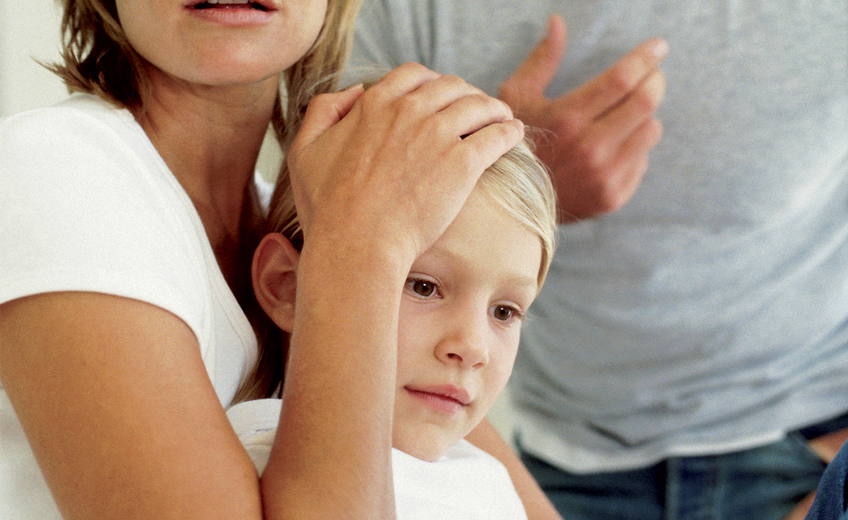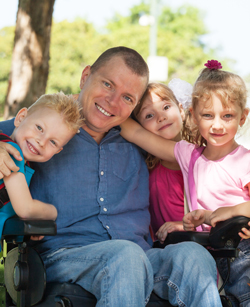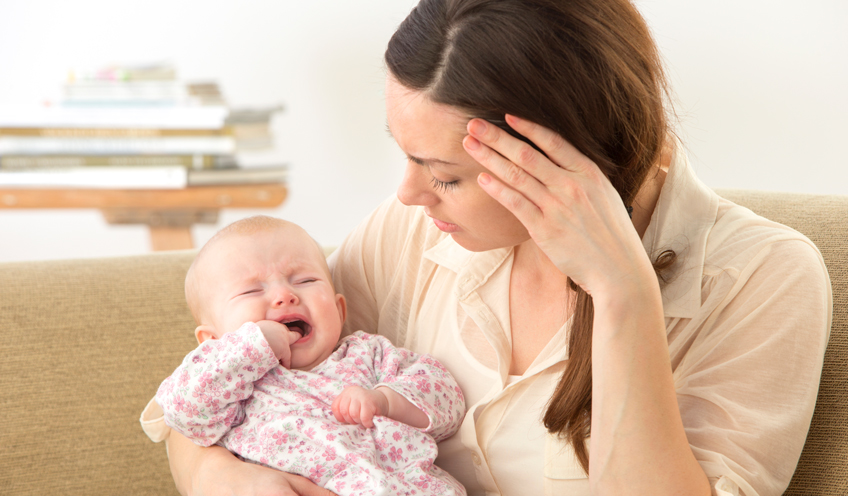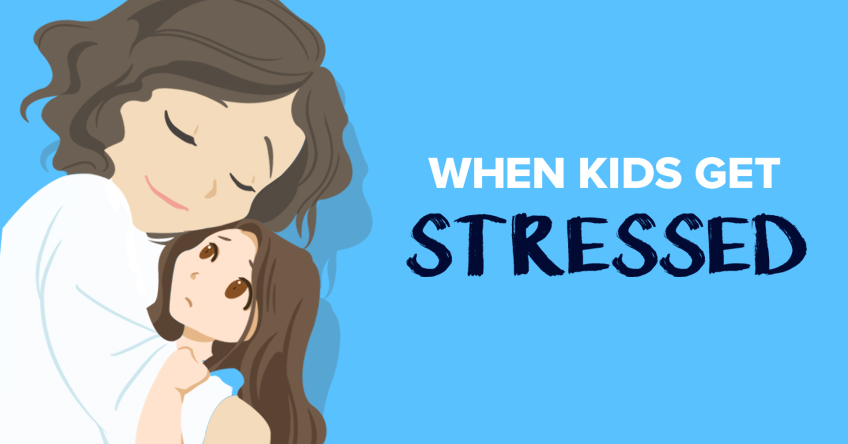We all feel stressed or upset sometimes. If the feelings do not go away in a short while, or if you feel you cannot cope, get help. Children can also feel anxious and upset. Problems like divorce or bullying can cause these feelings. If you are worried about your child, talk to her. You can also talk to her doctor or teacher.
Violence and abuse are serious problems. Even babies are affected when they see violence. Abuse can be when someone intentionally hurts your body. It can also be cruel words or a threat. No one, not even a family member, has the right to be violent or abusive. The law protects the rights of anyone who is being abused. Do not be afraid to get help.
If You Feel Depressed After Your Baby Is Born
Many new moms feel teary, anxious or upset after the birth of their baby. These feelings usually last about 2 weeks and are not serious. But if you have strong feelings of anxiety or depression, or you have felt depressed in the past, get help right away. You could have postpartum depression.
Postpartum depression is serious. It can last for months or even years. It can keep you from bonding with your baby. Counseling and medicines can help. There are medicines that are safe to take while you are nursing. Talk to a doctor or contact the Arizona Pregnancy and Postpartum Warmline.
Counseling
Counseling can help you deal with relationship problems, depression, stress and grieving. Find a counselor you trust. If you are worried about your child, talk to her teacher or a doctor. For more information and to find a counseling program, visit Mental Health America.
Abusing or Neglecting a Child Is Against the Law
Abuse includes hitting, yelling or having sexual contact with a child. Neglect means not giving food and shelter, or leaving young children alone.
Most abuse happens at home, and most abusers are someone the child knows. Teach your children to tell you if they are being harmed or sexually abused. Take it seriously and report it. Call the Arizona Child Abuse Hotline at 1-888-767-2445.

If You Suspect Child Abuse
If you suspect abuse or have questions about abuse and neglect, contact the Arizona Child Abuse Hotline or call 1-888-767-2445. Your call is private. If it is an emergency, call 9-1-1.
Signs that a child may be abused include:
- Unexplained bruises or marks
- Unexplained pain, swelling or bleeding in the mouth, genitals or anus
- Acting unusually sad, withdrawn or frightened
- Acting unusually violent or aggressive
- Copying adult sexual behavior
- Trouble sleeping
- No interest in school or other activities
Learn more at the Arizona Child Abuse Info Center.
Are You Being Abused?
If someone close to you does any of these things, it could be a sign of abuse.
- Shoves or hits you, pulls your hair or uses physical force against you
- Expects you to be perfect
- Keeps you from family and friends
- Is cruel to children or animals
- Breaks or hits things
- Uses physical force in sex
- Has sudden mood changes
- Abuses alcohol or drugs
- Threatens to report you to the INS
- Does not let you learn English
- Does not let you get a job
- Takes your money
THINGS YOU CAN DO
 Tips to Help You Manage Stress
Tips to Help You Manage Stress
- Think about what stresses you. Make a list.
- When you can, change the things that cause stress. But do it gradually. Start with something small.
- Talk over problems with friends or relatives.
- To feel calmer, think about how you are breathing. Breathe slowly.
- Focus on what is going well in your life.
- Make some time for yourself every day.
- Try to eat well and exercise.
- Avoid alcohol and drugs.
- Get extra support during holidays, anniversaries and birthdays.
- Try to avoid getting into debt.
Help Your Children Manage Stress
- Reassure your children and hug them often.
- Try to keep regular routines. Children feel more secure when they know what to expect.
- Let children ask questions and talk about stressful or upsetting events. Tell them it is OK to feel scared, angry, worried or sad.
Protect Yourself and Your Children from Abuse
- In an emergency, call 9-1-1.
- If you are scared, talk to the police now. Set aside clothes and money for yourself and your children. You may need to leave in a hurry.
- Many areas have shelters where women and children can live safely. The shelter will help you get legal help and make plans for the future. To find a shelter, call National Domestic Violence Hotline at 1-800-799-7233.
- If you no longer live with a partner who abused you, you can get a restraining order. Then the person cannot follow or bother you or your children. Call the National Domestic Violence Hotline at 1-800-799-7233.
The First Things First Parent Kit was developed in partnership with Health Research for Action/UC Berkeley. © 2018 The Regents of the University of California. Additional video, graphic and other content © 2018 First Things First. All rights reserved.



